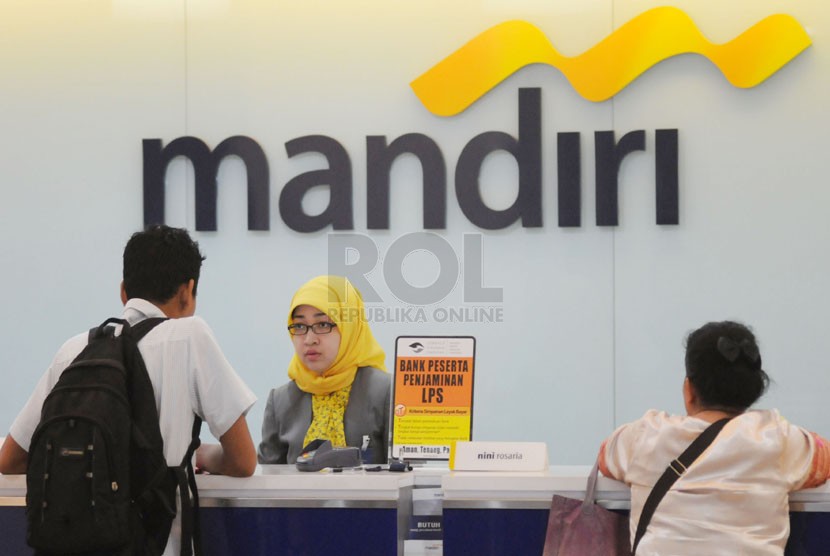REPUBLIKA.CO.ID, JAKARTA -- Observer said Bank Mandiri and Bank Rakyat Indonesia (BRI) are capable of leading banking consolidation in the country.
Either one of the two state lenders, could take the function, Mangasa Augustinus Sipahutar of the Management and Economics Development Studies (MECODE studies) said here on Sunday.
Both Bank Mandiri and BRI have good financial performance, Mangasa said , adding "either one of them is good."
Bank Mandiri is the largest lender in the country in term of assets and equity capital , and BRI recorded the highest net profit based on last year's financial reports.
Mangasa said the government and the state enterprise minister should not wasting time holding discourses on banking consolidation with no concrete ending.
He questioned the reason for the failure of Bank Indonesia to implement its single presence policy (SPP) on the government which has four banks.
"The SPP policy has not been applied to state banks . Whereas it is easier to merge state banks as the owner is one that is the government," he said.
He said too much discourse and the government inclination not to consolidate state banks had resulted in a decline in the performance of state banks.
He cited the performance of PT Bank Negara Indonesia (BNI), another state lender, has continued to decline with profit shrinking.
Similarly Bank Tabungan Indonesia (BTN), the smallest state has no capital to finance expansion, he added.
He said 15 years earlier BNI was the largest bank in Indonesia, but now its position has been relegated to the fourth.
The decline would not have happened if the government started consolidation 10 years ago , he said.
The government needs to be firm in its policy in banking consolidation otherwise banking consolidation will remain in the pipeline , he said.
He said Indonesia has been too slow in preparing for the implementation of free trade system under the ASEAN Economic Community scheme.
However, the government still has time to make up for the loss of time to strengthen the capital and assets of the state banks through consolidation.
"Nothing is better than combining good things," he said.
He said if the government failed in banking consolidation the way is open the wider for foreign banks to take domination of banking industry in the country.
In fact even now the country's banking industry is almost dominated by foreign banks through their control of private banks, he said.
"Foreign banks have no interest in improving the welfare of the people and the country's economy in general," he said, adding they are interest is to enrich their shareholders.
General chairman of the National Banking Association (Perbanas) Sigit Pramono said a developing country like Indonesia, needs to have special banking policy.
Sigit said banking consolidation is urgent.
He said a blue print is needed for the national banking industry for the next 5 to 10 years.
The blue print, which is equally effective as banking law, would be a product of consensus of various related parties including Bank Indonesia, the Financial Service Authority (OJK), the government including the Parliament to determine the position of state banks in the future, he said.
He said Malaysia, through its central bank, Bank Negara Malaysia, already has a blue print for its banking industry, development of its financiaol sector for the period of 2011-2020.


